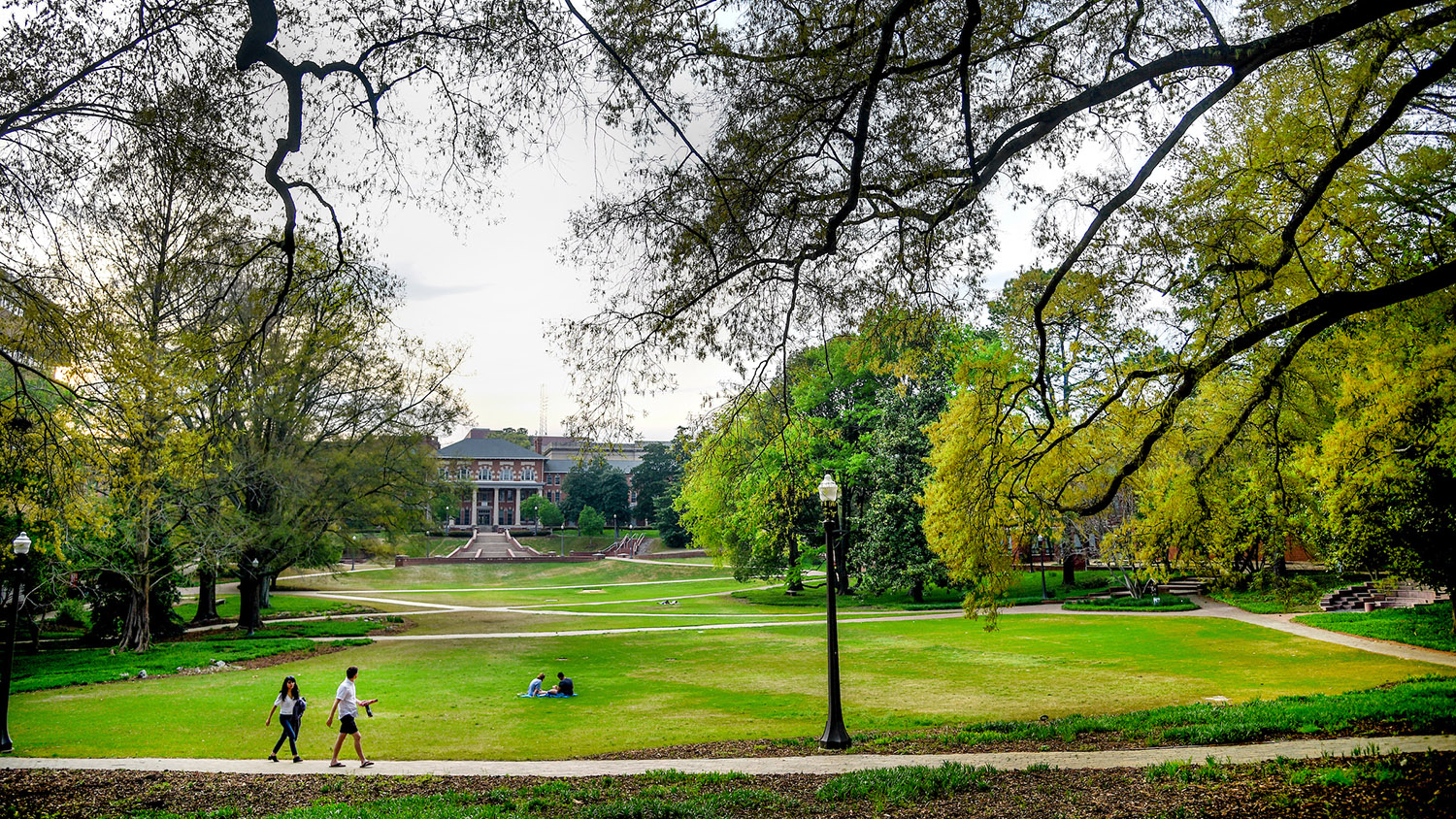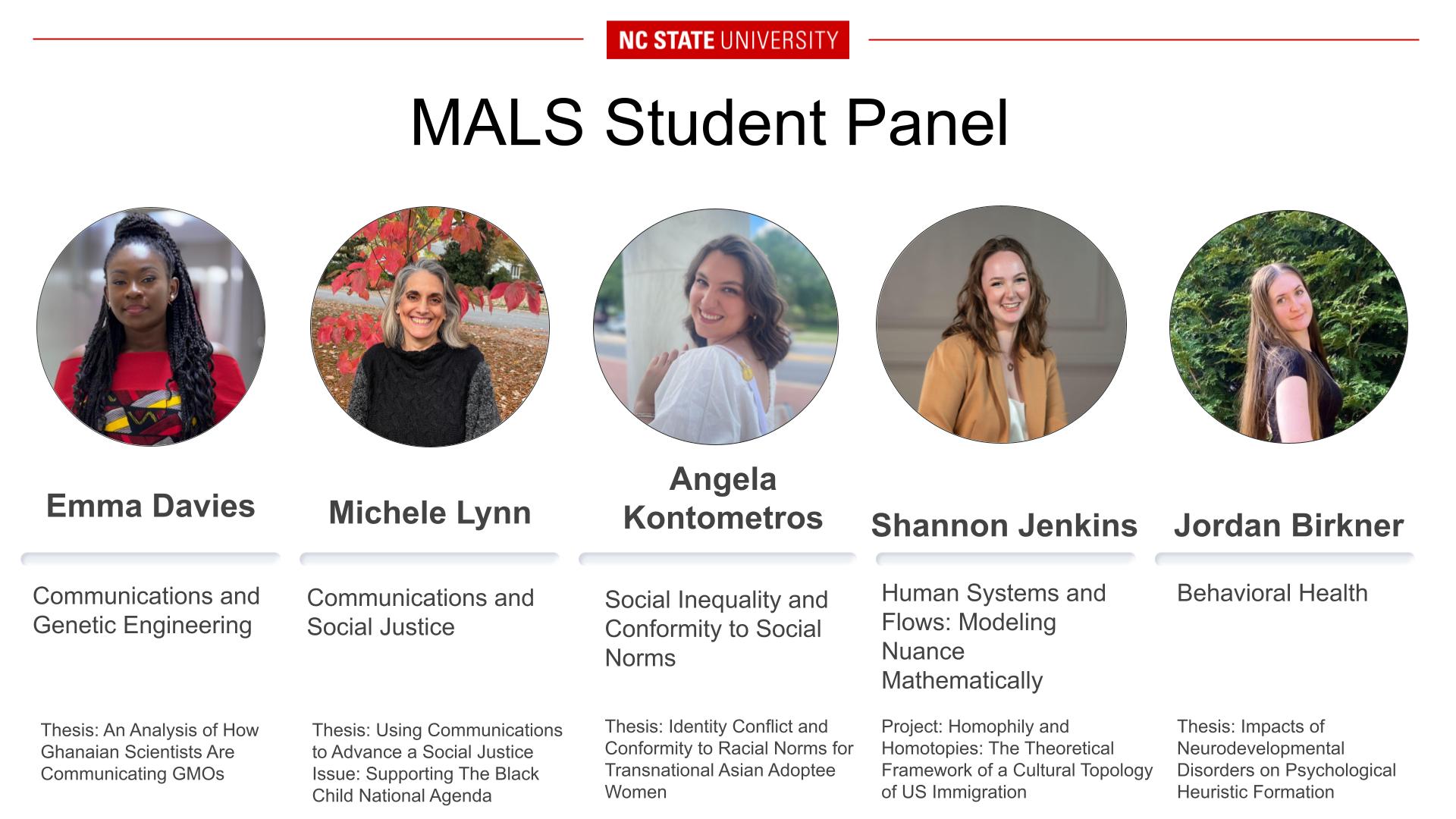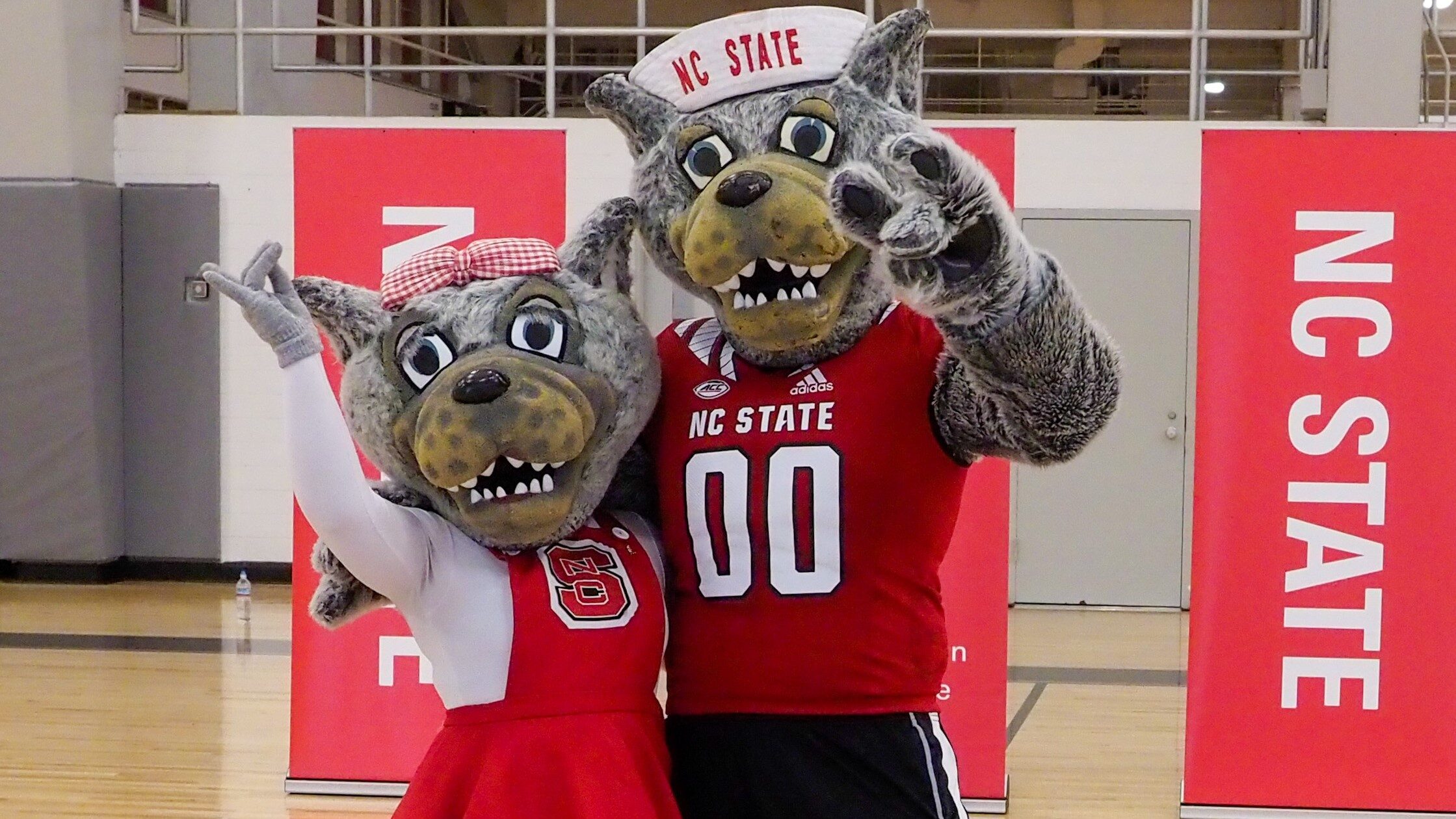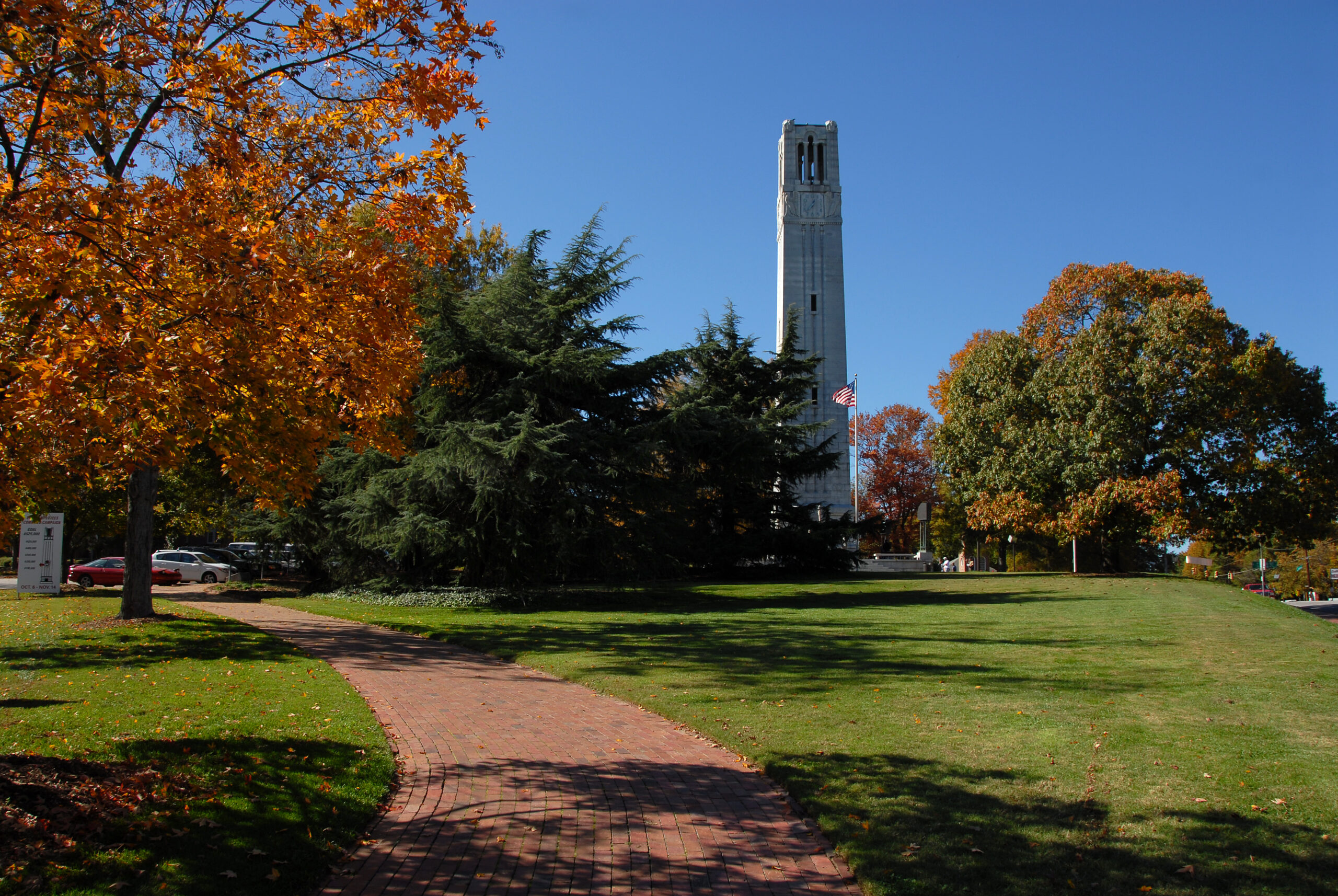Lynne Barbour, Timothy Rose and Cynthia DeLuca’s time at NC State helped them reach career goals within higher education. We were able to ask each of them a few questions about their time in the MALS program and where they are now.
Lynne Barbour
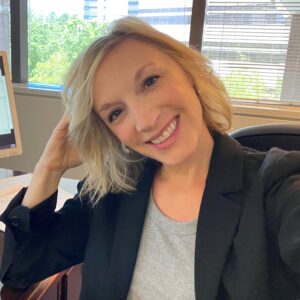
Please tell us what brought you to MALS? What was attractive about the degree?
I was attracted to the program because, as an adult learner, I did not have to take the GRE or GMAT. Additionally, I enjoyed the flexibility of designing my own educational pathway.
Tell us about your MALS concentration and culminating project. What was your concentration title? What significance did your concentration and project hold for you?
My degree concentration title was facility and program management. My final project was a summary of work I had been doing with a small university committee on the development of a true mixed-use facility on Centennial Campus. It was significant in that I was provided time and resources to complete my degree while supporting the committee’s mission of researching a plan for Centennial Campus development..
What are you doing currently? We’d love to know about your professional, personal, and/or volunteer activities.
I am the Deputy Director of the Office of Learning Recovery & Acceleration at the NC Department of Public Instruction. Our main focus is using federal COVID relief funds to 1) design state-wide recovery programs for public school students, 2) provide high-level consultation services to school districts and charter schools on their strategic planning and expenditures of a specific % of their ESSER III funding that is federally mandated to be spent on interventions, 3) provide research and evaluation support to schools, and 4) evaluate the impact of specific federally-funded programs.
How has your MALS degree and experience with the program enhanced your work/life? In particular, what impact has your MALS training had on your career in higher education?
The degree program further fine-tuned my durable skills including workplace flexibility, intentional collaboration, and ability to find the answer. As a state employee who is federally funded, there are a lot of roadblocks and barriers. We are a “yes, and?” office which is both exciting and challenging. We strive to be solution providers and problem solvers. Having the ability to be self-motivated and data-driven are key to success in this role.
What is your favorite memory from your time in MALS? This can be a personal anecdote, a favorite lecture/class/topic, etc.; whatever you want to share is fine.
Book CLUB!!!!!!!!!!!!!!!!!!! [this refers to former Dean Jeffery Braden’s MALS seminar, “CHASS Book Club”]
For more information on Lynne Barbour’s career, visit her on LinkedIn.
Timothy Rose
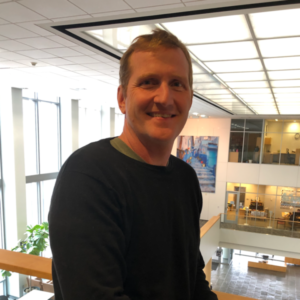
Please tell us what brought you to MALS? What was attractive about the degree?
I was working at NC State University and wanted to continue my studies with a Masters Degree. I chose the MALS program because it allowed me to tailor a program to my interests. The interdisciplinary aspect of the program was very attractive to me. The MALS seminars seemed interesting (which they were) and the fact that I could tailor the rest of the program to my particular academic interest helped me choose the program.
Tell us about your MALS concentration and culminating project. What was your concentration title? What significance did your concentration and project hold for you?
My concentration was Internationalization and Globalization. My culminating project was entitled “Addressing Challenges Related to Cultural Adaptation in Saudi Arabian Students Enrolled at NC State University”. I chose a topic directly related to my work. A part of my duties, at the time, included mentoring and advising Saudi Arabian students at NC State. This was significant as it helped me learn more about the needs of the students with whom I was working, how best to address these needs, and it allowed me to share this information with other members of the NC State Office of Global Engagement.
What are you doing currently? We’d love to know about your professional, personal, and/or volunteer activities.
I have recently taken a position with the UNC-Chapel Hill Office of the Vice Provost for Global Affairs. I am the new Associate Director for Exchanges and Sponsored Programs. My work includes helping organize a variety of international programs for students, faculty and staff from UNC-Chapel Hill and our international partner universities and organizations.
How has your MALS degree and experience with the program enhanced your work/life? In particular, what impact has your MALS training had on your career in higher education?
I believe my training did make me a better educator. I had not personally studied for several years and being back in classes was intellectually stimulating. As my final project directly studied challenges facing international students, this helped me be a better, more understanding advisor and mentor. While it was not specifically mentioned, I imagine my having a Master’s Degree also helped in my job search and being offered the position I now have.
What is your favorite memory from your time in MALS? This can be a personal anecdote, a favorite lecture/class/topic, etc.; whatever you want to share is fine.
While I enjoyed all of my classes, my first MALS seminars on the Ethics and Ideology of Choice stands out as a particularly strong memory. The class was very interesting, included a lot of discussions and exposure to different topics from different points of view.
What else do you feel would be important for us to know, to really understand who you are?
I consider myself a lifelong learner and the MALS program was one important chapter in my learning voyage.
For more information on Timothy Rose’s career, visit him on LinkedIn.
Cynthia DeLuca
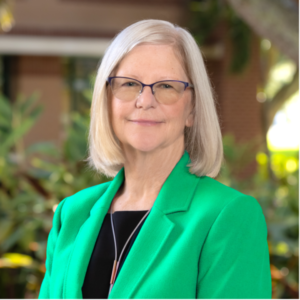
Please tell us what brought you to MALS? What was attractive about the degree?
I was interested in multiple fields of study. The MALS program gave me the flexibility to design my own academic pathway.
Tell us about your MALS concentration and culminating project. What was your concentration title? What significance did your concentration and project hold for you?
My final project was focused on designing a cultural competence curriculum that could be integrated in a variety of degree programs. The research for my final project was instrumental in my decision to pursue a doctorate in Educational Leadership.
What are you doing currently?
I am currently the Vice President of Student Success at the University of South Florida.
How has your MALS degree and experience with the program enhanced your work/life? In particular, what impact has your MALS training had on your career in higher education?
My experience with MALS and especially my culminating project was a continued interest in diversity, equity and inclusion and how it needs to be embedded in our academic curriculum. My masters was the beginning of my work in higher education administration.
What is your favorite memory from your time in MALS? This can be a personal anecdote, a favorite lecture/class/topic, etc.; whatever you want to share is fine.
My favorite memory is the friendships that I formed with people from a variety of backgrounds and interests. A true testament to the value of liberal arts!
What else do you feel would be important for us to know, to really understand who you are?
My academic journey is one that is a true testament to the value of education. I was a first generation student, an adult learner and a female that needed to juggle work life balance. I received my bachelors and masters from NC State and my doctorate from East Carolina University. My experiences gave me a solid foundation for being the VP of Student Success at the University of South Florida.
For more information on Cynthia DeLuca’s career, visit her on LinkedIn.
- Categories:
